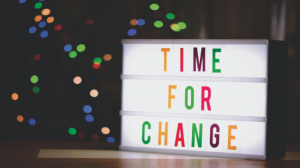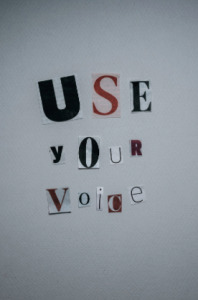By Susan Merkel, MSW, LSW

Three thousand seven-hundred ninety-five is the number of hate crimes that Asian Americans have endured since the beginning of the COVID-19 Pandemic.
This number is especially staggering when you consider that Asian Americans represent just 6% of the U.S. population.
The Facts About Hate Crimes Against Asian Americans
In the aftermath of the Atlanta, GA shootings, many of us are saddened by violence against women and Asian Americans. While this event is truly tragic and devastating, it is not the first instance of anti-Asian violence.
Sadly, since the Covid pandemic hit Americans in March 2020:
- Hate crimes against Asian Americans have spiked 150%.
- Three in ten Asian American adults have experienced jokes or slurs about their race or ethnicity, a number far more significant than any other race.
- According to Pew Research, 68% of documented Asian American harassment and violence reports have been against women.
- The American Psychology Association reports that 80% of the Asian American population struggles with depression and anxiety compared to 20% before March 2020.
These Statistics Don’t Capture the Microaggressions Asian Americans Face Regularly
Most Asian people experience microaggressions that are more covert, but just as devastating and sometimes less obvious.
Bullying ranges from the “model minority myth” that comes with unfairly biased assumptions and expectations. For example, being good at math or an excellent violinist and the belief that they should be an honor student or take every available APA class. These have been prevalent cultural stereotypes for years.
As a therapist and human being, I have often heard and seen firsthand Asian children being bullied, told that their English is good for an (insert any Asian group), positive or negative comments about eye, nose, or lip shape.
Furthermore, Asian women are assumed to be placating, acquiescent, or soft-spoken, or worse, are hypersexualized.
All of these examples are harmful. Even, and sometimes especially, those that may seem complimentary. All of these examples alienate and may cause Asian Americans to feel different, as though they are something “other.”
Beyond these assumptions are cultural and systemic barriers.
Many Asian traditions discourage speaking up. The Chinese saying “meng fu” translates to grin and bear it. Asian American children may not have parents who model speaking up and lack the skills to advocate publicly. Moreover, some Asian Americans avoid reporting harassment and attacks due to their immigration status.
Sadly, none of this is new.
Asians in the U.S. have been scapegoated for illness, disease, and economic downturns since Chinese migrants first arrived in the 1800s. At that time, the transcontinental railroad was in the process of being built and many recent migrants found work on this project. Most of the men who built the railroad were denied citizenship and returned to a war-torn China.
In NYC recently, a 60-year-old Japanese American woman was pushed down and her phone stolen right in front of a food store.
A young doctor was grabbed, dragged, and beaten after exiting the hospital where he works to save Covid patients, with bystanders ignoring his pleas for help.
Asians throughout the country report being spat at by men, women, and parents, with their children observing this violent behavior.
Many Asian Americans have been called “Coronavirus” or “Covid” as if they are personally responsible for a global crisis.
Become An Ally and An Advocate
Maybe in 2021, we have 3,795 moments to embrace, intervene for, and stand up for our Asian American brothers and sisters. It is never too late to become an ally.

Here are a few things you can do to help:
- We are all responsible for advocating.
- Educate yourself on the mental health impact
- Risk your comfort zone and speak out when you see racial injustice.
- Attend a Training on Becoming a Bystander
- Connect on Social Media
- Support Adoption
- National Council of Asian Pacific Americans
Reach Out to a Counselor
As always, if you find yourself struggling in these areas, do not hesitate to reach out for help. A licensed therapist or counselor can help empower you to be your best self!
Susan Merkel is a licensed social worker. When she is not working or advocating, Susan loves spending time with her family, dog, and cat. Susan loves reading, kayaking, horseback riding, hiking, the beach, and movies. Susan’s passion is working with members of the adoption constellation, including adoptive parents, adoptees, birthparents, pre-adoptive parents.
EWC has locations in Manalapan and Shrewsbury, NJ, and accepts a variety of insurances.
Check out Susan’s professional bio here!
Email Us: info@exceptionalwellnesscounseling.com
Call Now: (908) 415-2042
NEXT STEPS & RESOURCES
- Are you ready to take your first step? Reach out to us.
- Do you feel you may benefit from counseling during this time? Take the first step.
- Interested in online counseling? Learn more.
- Resources for Understanding and Advocating:
